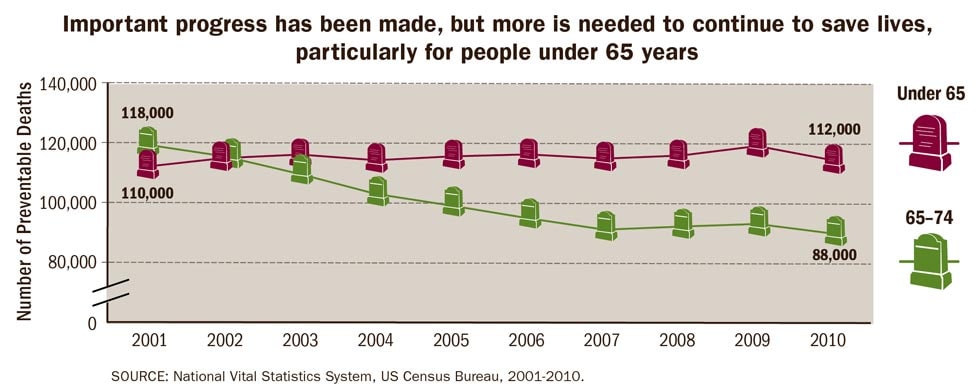Sometimes a headache is just a headache, but sometimes it's a sign that you're having a type of stroke called subarachnoid hemorrhage (SAH). What happens when emergency room doctors don't recognize this possibility?
A large number of misdiagnosed stroke cases occur every year, particularly for stroke from hemorrhage, in which 20 percent of cases may go undiagnosed. Subarachnoid hemorrhage (SAH) is the kind of stroke with the highest rate of under-diagnosis.Read the entire article for good tips.
(Photo from U.S. Department of Health and Human Services)




